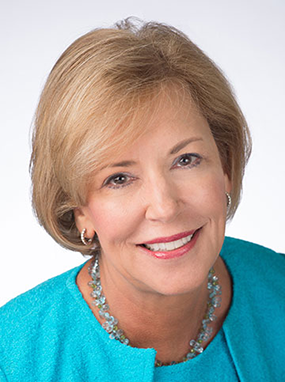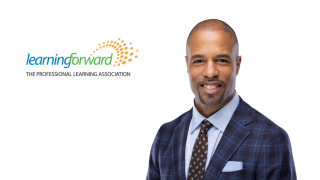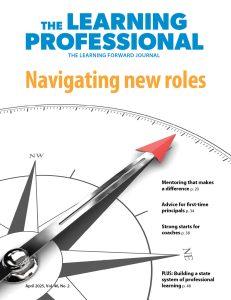In partnership with Corwin and NEA, we’ve just released results from a survey of teachers responding to questions about the professional learning they experience. In The State of Teacher Professional Learning, we highlight findings and recommendations based on the responses of more than 6,300 teachers.
More than 35 states have adopted or adapted the Standards for Professional Learning, so as we conceived this survey, we were curious to see if teachers say their learning aligns with those standards. The Standards Assessment Inventory provides a valid and reliable measure of the degree to which the professional learning teachers experience aligns with the standards, and that tool is the basis for the survey recently conducted nationwide.
In the results, we see several bright spots for teacher professional learning across the U.S.:
Teachers report that leaders in their schools and systems are committed to professional learning. The teachers responding to the survey say their leaders place a high priority on learning for all staff and see the connection between professional learning and student achievement.
Teachers agree that their leaders have confidence that all staff are capable of being professional learning leaders. This finding is critical for schools and districts committed to building learning cultures where everyone is responsible for everyone’s learning.
Teachers say that student achievement data informs professional learning planning. In an effective cycle of continuous improvement, grounding professional learning in the specific learning needs of students is essential.
Teachers recognize the value of job-embedded collaborative learning. They also recognize the importance of practicing and applying new practices in the classroom and having frequent opportunities for feedback.
The report also indicates several areas that can inform states and school districts as they improve their professional learning systems and teacher supports:
Teachers do not have adequate time during the school day for job-embedded learning. While they know this is the kind of learning that will deepen their knowledge and change their practices, many teachers say that they have little time for learning embedded in the workday.
Teachers say that a variety of data aren’t used to plan or evaluate their learning. Though student achievement data informs planning, other types of data aren’t considered, such as educator experience levels or learning needs. Data are also not used to continuously evaluate the impact of professional learning.
Teachers report they have little say in decisions about their professional learning. Teachers identify school and district leaders as the primary decision makers about professional learning in schools and indicate that the allocation of resources for professional learning is not openly discussed.
When states adopted the Standards for Professional Learning to guide policy and practice, they made a commitment to their educators that their professional learning would meet the standards, which ultimately would benefit all students. This survey provides a benchmark against which schools and systems can assess their own progress toward meeting the expectations outlined in the Standards for Professional Learning.
I encourage all stakeholders to explore the report and its recommendations more deeply. Learning Forward, Corwin, and NEA intend for this data to inform conversations about the learning educators experience and the culture and resources necessary for continuous improvement.
This post originally appeared in Learning Forward’s PD Watch.



![Poil blog v1[1]](https://learningforward.org/wp-content/uploads/bb-plugin/cache/poil-blog-v11-custom_crop.jpg)




